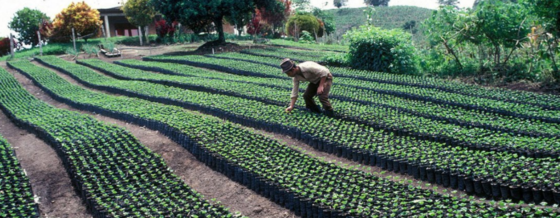
What Would Land Redistribution Mean for Colombia?
A Latin America Advisor Q&A featuring experts’ views on planned agrarian reforms in Colombia under the government of President Gustavo Petro.
A Latin America Advisor Q&A featuring experts’ views on planned agrarian reforms in Colombia under the government of President Gustavo Petro.
A Latin America Advisor Q&A featuring experts’ viewpoints on the state of security in Colombia under Iván Duque’s administration.
On December 9, 2021 the Inter-American Dialogue, in partnership with the International Crisis Group (ICG), hosted the event “Building the Peace in Colombia: Five years after the end of the FARC conflict.”
Michael Shifter, presidente de Diálogo Interamericano, redactó el prólogo para el nuevo libro de Fernando Carrillo “4 de julio de 1991”, volumen que el exprocurador y exconstituyente escribió, con el respaldo de Editorial Planeta, a propósito de los 30 años de la Carta Política.
A Latin America Advisor Q&A featuring experts’ viewpoints on the recent military offensive that Venezuela launched along its border with Colombia.
On December 15, 2020, the Inter-American Dialogue hosted the webinar “Rethinking Drug Policy in the Americas.” The panel discussed the report of the Western Hemisphere Drug Policy Commission, its evaluations of US counternarcotics policy in the Americas and recommendations for its reform.
On November 19, the Inter-American Dialogue hosted “A Conversation with Iván Duque Márquez,” welcoming back Colombian President Iván Duque for a wide-ranging discussion on his administration’s priorities and the future of the US-Colombia relationship amidst an incoming US administration.
Rafael Pardo, Member of the Dialogue & former minister of defense of Colombia, has published a new book titled La guerra sin fin: Una nueva visión sobre la lucha contra las drogas, or “The War with No End: A New Vision for the Fight against Drugs.”
Peter Hakim, president emeritus and a senior fellow at the Inter-American Dialogue, joined Imran Garda of TRT World’s The Newsmakers to discuss recent developments in Colombia and the future of the Colombian government’s peace deal with the FARC.
What are the implications of the Supreme Court’s decision to release former FARC leader Seuxis Hernández?
¿Cómo está respondiendo el Presidente Duque a la violencia de guerrillas en Colombia?
How well is peace taking hold in Colombia, two years after the signing of the peace accord?
Catalina Botero, abogada y decana de la Facultad de Derecho de la Universidad de Los Andes y Michael Camilleri, director del programa Peter D. Bell de estado de derecho, analizan los retos a los que se enfrentará el gobierno de Ivan Duque y el estado del país que ha heredado.
On June 28, the Inter-American Dialogue hosted an event titled “Duque’s Peace? Colombia’s New President and the Future of the Peace Process” featuring photos from the series “Peace Football Club” by the World Press Photo Exhibition. The speakers discussed the implications of Ivan Duque’s election on the future of the country’s peace process.
Millions of Colombians voted in a presidential election run-off on Sunday. The winner is Ivan Duque a 41-year-old conservative. And, after a divisive campaign between left and right, he has vowed to unite his country. To discuss the path forward for Colombia, Anand Naidoo, host of CGTN’s The Heat, spoke with Bernardo Perez Salazar, Juan Carlos Hidalgo, Gustau Alegret, and Michael Shifter.
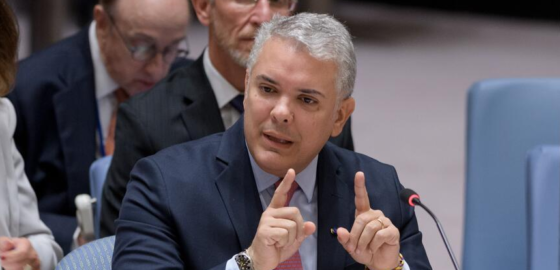
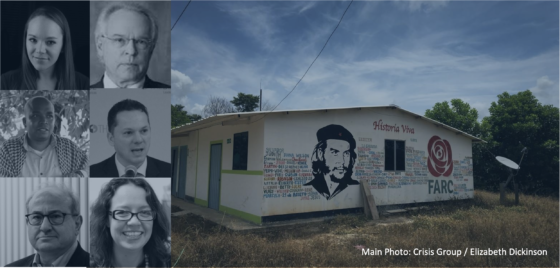 Video
Video
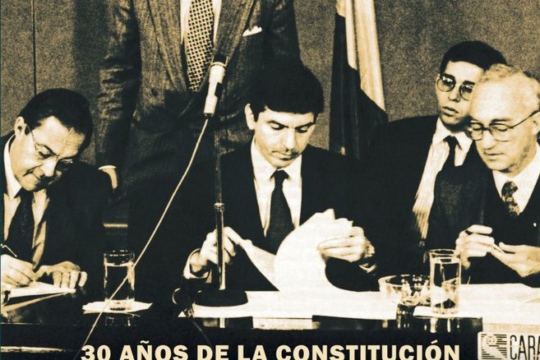
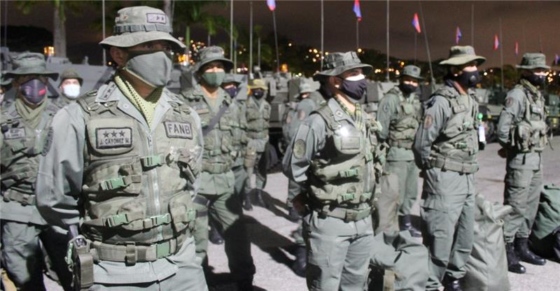
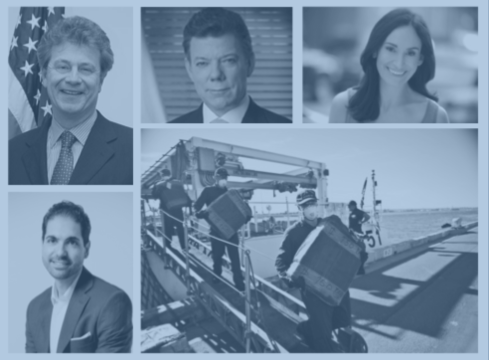 Video
Video
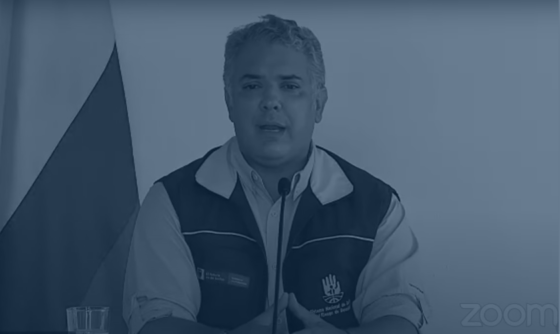 Video
Video
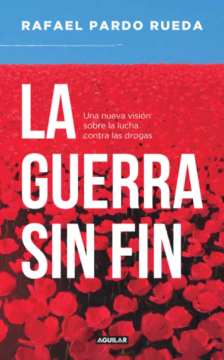 Video
Video
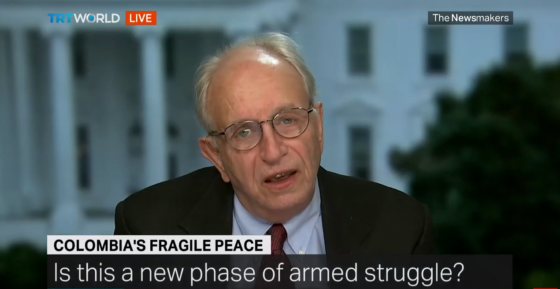 Video
Video
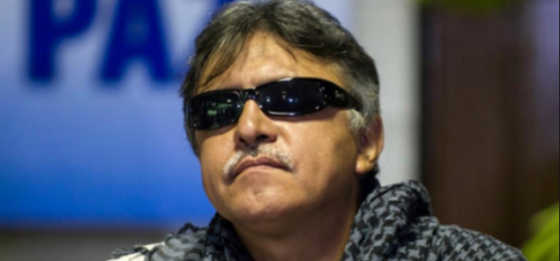
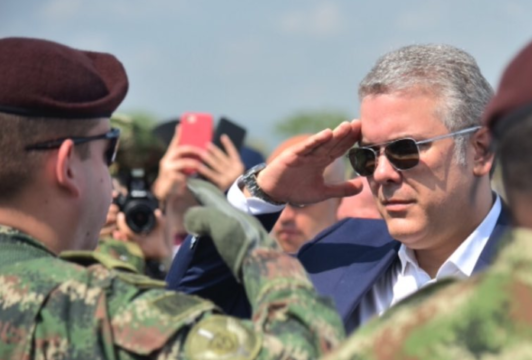
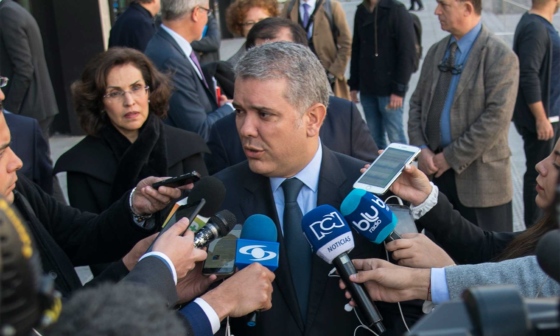
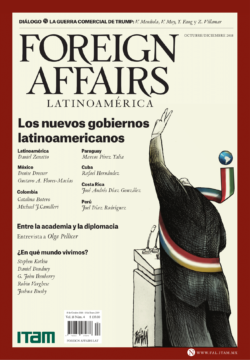
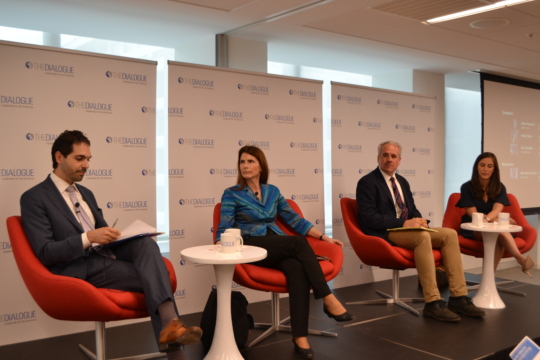 Video
Video
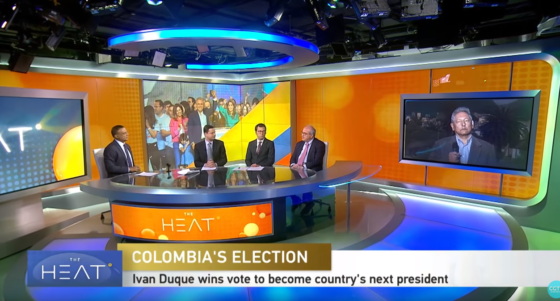 Video
Video